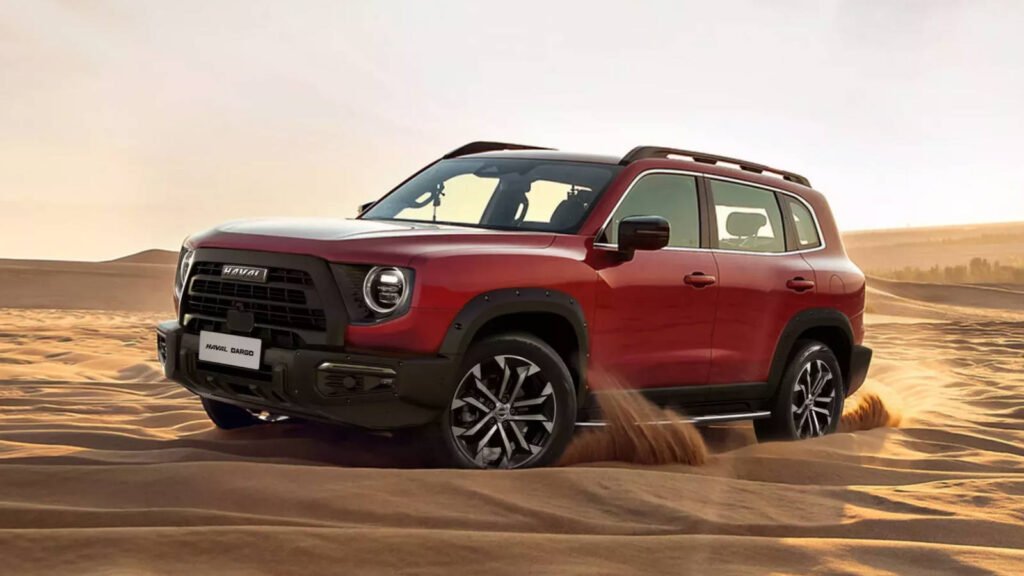

Why Chinese Cars May Not Be the Best Choice for GCC Drivers
Overview
In recent years, Chinese automobile manufacturers have increased their presence in global markets, including the Gulf Cooperation Council (GCC) countries. While their vehicles often attract consumers with competitive pricing and modern features, several critical factors should be considered before purchasing a Chinese-made car in the GCC.
Durability Concerns in Extreme Weather
The GCC region is characterized by extreme heat, with summer temperatures often exceeding 50°C (122°F). Vehicles in such environments require robust engineering, particularly in cooling systems and heat-resistant materials. While Chinese car manufacturers have improved quality, concerns persist about their long-term durability under extreme conditions. Some reports suggest that Chinese vehicles may not be as well-equipped to handle the severe temperatures of the GCC, leading to accelerated wear and tear over time.

Performance and Reliability
GCC drivers often seek vehicles capable of handling diverse terrains, from smooth highways to challenging desert landscapes. Established brands like Jeep and Ram are known for their off-road capabilities and reliability. However, many Chinese models may lack the necessary engine power and drivetrain strength required for such versatility. Additionally, while initial quality may be satisfactory, long-term reliability remains a concern, with reports of mechanical issues arising as the vehicle ages.
Resale Value
Resale value is an important consideration for many car buyers in the GCC. Chinese vehicles tend to depreciate more rapidly than their Japanese, American, or European counterparts. For instance, after just two years of ownership, the resale value of many Chinese cars is significantly lower compared to other established brands. This rapid depreciation can make them a less attractive investment in the long run.

Availability of Spare Parts and Service Centers
The availability of spare parts and a comprehensive service network is crucial for vehicle maintenance. While Chinese manufacturers are expanding their presence in the GCC, their service infrastructure often lags behind more established brands. This can result in longer wait times for parts and limited access to qualified technicians, increasing maintenance costs and potential vehicle downtime.

Safety and Technology Gaps
Safety is a top priority for GCC drivers. Although Chinese cars often come equipped with modern technology and safety features, there are concerns about their real-world performance. Differences in safety standards and testing protocols may mean that Chinese vehicles do not offer the same level of protection as those from more established manufacturers. Buyers should be cautious and verify safety ratings before making a purchase.

Long-Term Costs
While the initial purchase price of a Chinese car may be lower, potential long-term costs can outweigh these savings. Factors such as rapid depreciation, possible reliability issues, and challenges with spare parts and servicing contribute to the overall cost of ownership. Investing in a vehicle from a well-established brand may offer better value over time, considering factors like durability, resale value, and availability of service support.
Limited Brand Recognition and Trust
Many GCC drivers prefer vehicles from globally recognized brands due to trust and reliability. Chinese car brands, despite their growth, still lack the same level of brand recognition as established European, American, or Japanese manufacturers. Buyers may hesitate to invest in a vehicle from a lesser-known brand, especially when considering long-term reliability and brand reputation.

Warranty and After-Sales Support
Chinese car manufacturers often offer competitive warranties, but their after-sales service and support can be inconsistent compared to well-established brands. Many GCC consumers value responsive customer service, and the absence of a strong service network can lead to added frustration and inconvenience. It’s important to consider the overall warranty experience and availability of servicing and repair support in the region.
Conclusion
While Chinese cars offer appealing features and competitive pricing, they may not fully meet the needs and expectations of GCC drivers. Durability in extreme climates, performance requirements, resale value, service availability, and after-sales support are critical considerations. Prospective buyers should carefully evaluate these aspects to ensure they make an informed decision that suits their long-term automotive needs. Investing in a vehicle from a trusted, established brand may provide better value and peace of mind in the long run.
Categories
- Car Services (14)
- Cars history (10)
- Cars News (38)
- Uncategorized (11)
Recent Posts
About us
automax ® is a leading provider of exporting services for brand-new vehicles. We have been in business for over 27 years, and we have assisted thousands of customers import vehicles from Dubai to all over the world.
Popular Tags
Related posts


Tesla Cybertruck: Revolutionizing the Pickup Truck Market

Jeep Driving Forward in the Middle East with Unmatched Performance

Simple Overview: The 2024 Jeep Grand Cherokee Limited
FEATURED VEHICLE








